Why NCERTs are Important for NEET? PDF Download
“Bhavik Bansal, NEET 2019 AIR 2, calls NCERT to be the Bhagwad Gita for NEET.”
According to him, it is extremely essential that candidates practice all that is given in the NCERT thoroughly, only then they should move to other books for NEET. The reason behind the high value given to the same is listed below:
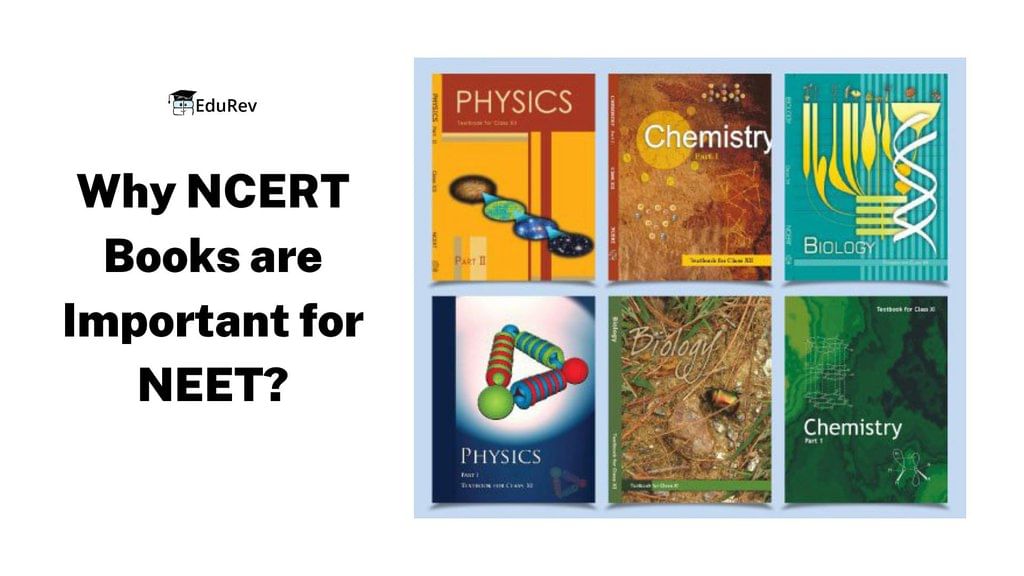
- NCERT books are highly recommended for NEET preparation due to their simple language, strong fundamentals, diagram-based questions, and direct questions in the examination.
- Experts and toppers emphasize the importance of NCERT books for all subjects, especially Biology, which has the highest weightage.
- Nalin Khandelwal, NEET 2019 AIR 1, recommends multiple readings and note-taking for thorough preparation.
- By practicing from NCERT books, candidates can easily understand and retain concepts, and solve direct questions asked in the examination.
How to study Biology from NCERT?
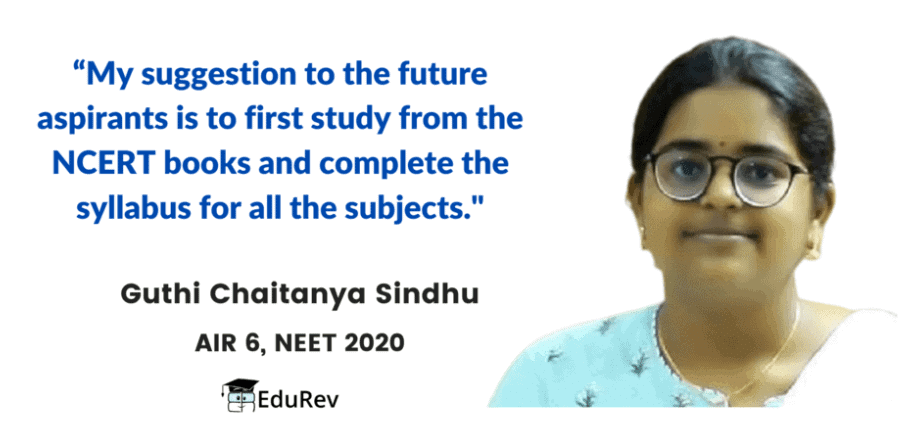
- Read NCERT before studying the chapter from video lecture: Before starting any chapter, first read it from the textbook. Even if you're left with countless confusions, don't worry, just read it through once and After you have completed the chapter from the video lecture, go back and read the textbook again. This simple approach will work wonders in clearing your doubts and solidifying your understanding of the topic at hand.
Also, Edurev has made it easier for you to access all the NCERTs for Biology by compiling them for each and every chapter. This way, you won't have to spend time searching for the book all over the place. - Understand the Concept: Attend lectures by your teachers or you can watch video lectures from EduRev. This will help you understand the concepts better and clarify any doubts you may have.
- Each and every line of NCERT is important: Read each and every single line of the textbook and highlight the most important lines.

- No Doubts should be left behind: If you have uncertainty or confusion regarding even a single sentence, it is important to ask your teachers or you can ask in EduRev discussion forum. Don't hesitate to ask, clearing your doubts will help you build a strong foundation in the subject.
- Elaborate the flowcharts: Condense flowcharts into paragraphs. Biology is a visual subject, and flowcharts are a great way to understand complex processes. However, it's important to condense them into paragraphs to help you remember the details.
- Keep a Keen eye on Numerical values: Having a good understanding of the numerical values given in the textbook is extremely important for acing the NEET exam.
For example, in the Human Reproduction chapter, on the second page of the textbook, it is stated that each testis contains 250 lobules. However, it is possible that the NTA may ask a question that requires you to calculate the number of lobules in a pair of testis. In such a situation, you would need to calculate the number of lobules to be 500, and not 250.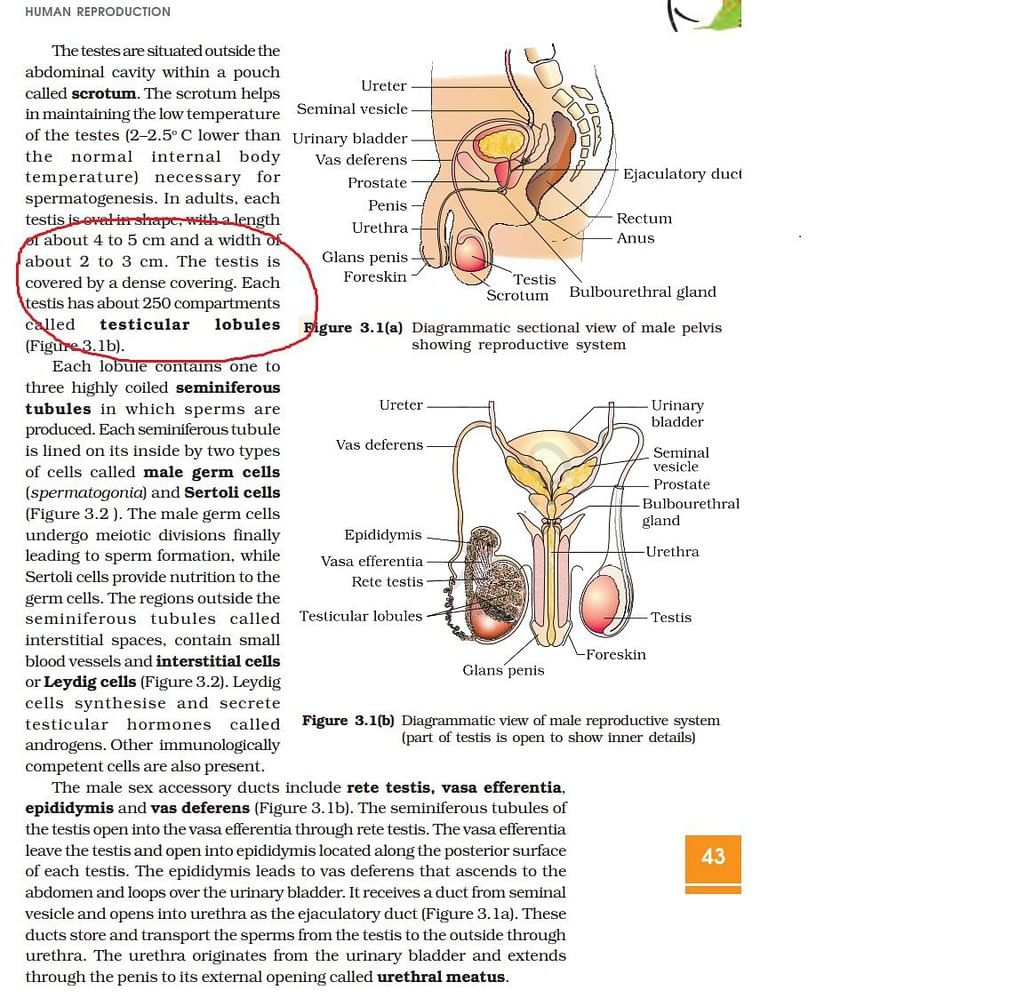 To ensure you don't get confused in the exam, it is beneficial to make a note in your textbook and calculate the number of lobules in a pair of testis beforehand. This small habit of double-checking the numerical values can make all the difference in acing the NEET exam, these things are very little to notice that’s why NEET is one of the toughest exam.
To ensure you don't get confused in the exam, it is beneficial to make a note in your textbook and calculate the number of lobules in a pair of testis beforehand. This small habit of double-checking the numerical values can make all the difference in acing the NEET exam, these things are very little to notice that’s why NEET is one of the toughest exam. - Simplify your NCERT: Use sticky notes, color pens, highlighters to simplify your textbook. These tools can help you organize your notes and make important concepts stand out. Simplifying your textbook will help you remember important details.
- Understand the Processes given in NCERT: It is important to understand all the processes of NCERT in detail before attempting to memorize them. For instance, if you are studying the Krebs cycle as given in the textbook, memorizing it would be of no use if you were to answer a question such as 'How many substrate level phosphorylations occur in one cycle of Krebs?' which was asked in the previous year NEET exam.
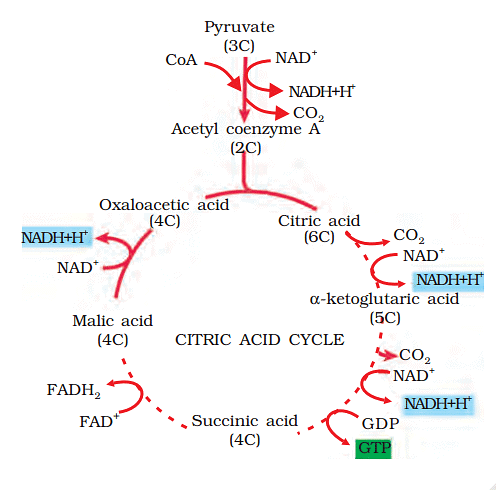 Kreb's CycleTo be able to answer this type of question, you must have a thorough understanding of the terms used in the Krebs cycle. Simply memorizing the material will not be enough.
Kreb's CycleTo be able to answer this type of question, you must have a thorough understanding of the terms used in the Krebs cycle. Simply memorizing the material will not be enough. - Don’t Skip NCERT Summary: Many NEET aspirants overlook the summaries from the textbook, however, a lot of questions in the past have been asked from them. For example, in the chapter on Human Reproduction, the significance of three hormones - cortisol, estrogen and oxytocin - are outlined in the summary, while the main content only mentions the importance of cortisol.
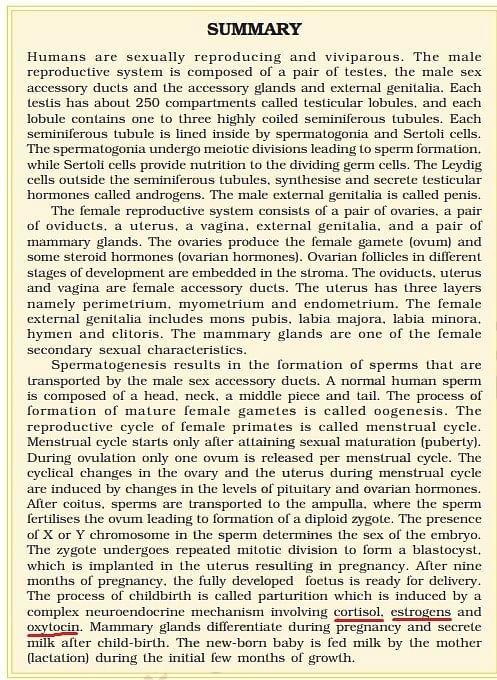 Consequently, if such questions come up in the NEET exam, some may think that the questions are not from the NCERT, which is not correct.
Consequently, if such questions come up in the NEET exam, some may think that the questions are not from the NCERT, which is not correct. - Solve NCERT Exercises: Some of the exercise questions may require you to answer questions which cannot be found directly from the text. For such questions, you should seek assistance from your teachers.
- Remember Examples: NCERT contains so many examples that you need to remember. Like the examples given in Morphology of Flowering Plants, it is recommended to make a list of them and create mnemonics to help with memorization. This is the most effective way to remember the information and recall it during exams.
- Strictly NCERT oriented Short Notes: It is compulsory to make your own notes which should be strictly NCERT oriented & make sure to include all the keywords. This is because questions in the NEET exam are based on these keywords and if you can recall them quickly, you should be able to finish the paper in the allotted time.
- Solve NCERT-based MCQs & PYQs: If you keep on studying the chapter notes repeatedly, it can become tiresome. To remember the topics better and to keep yourself motivated, it is suggested that you solve the NCERT-based questions and PYQs shortly after completing the chapter, you can practice these PYQs and NCERT-based questions from EduRev. This will help you understand the level of your preparation and whether you need to further upgrade it.
How to Study Chemistry from NCERT?
NCERT textbook play a crucial role in NEET Chemistry preparation, offering comprehensive coverage of the entire syllabus in a clear and concise manner. As per the advice of NEET toppers, most of the questions asked in the Chemistry section of the exam are directly or indirectly based on the NCERT textbook. Therefore, a thorough understanding of the concepts covered in the NCERT books is essential for students to perform well in the exam.
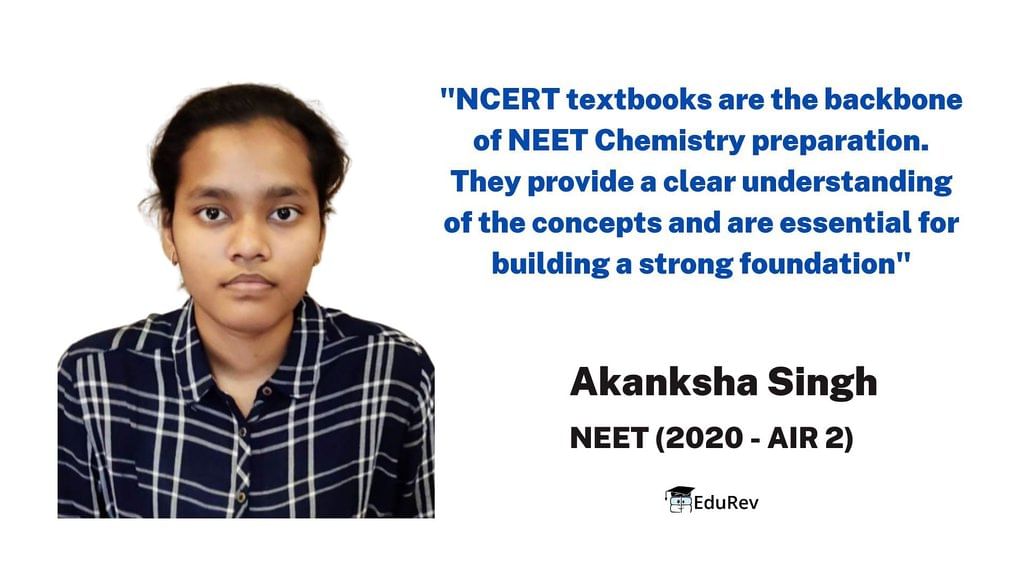
Here are the details of How you can study Physical, Inorganic, and Organic Chemistry from NCERT Books.
How to study Physical Chemistry from NCERT Book?
Physical Chemistry is an essential branch of chemistry that deals with the study of the physical properties of matter and its transformations. Here are some tips on how to study Physical Chemistry from the NCERT book:
- Aim to visualize and understand each page thoroughly: Start by reading the introductory chapters of the NCERT Chemistry textbook to understand the basic concepts of Physical Chemistry.
- Abandon Unreasonable Expectations of Significantly Higher Results: When it comes to studying from NCERT, it's important to be realistic and ditch the false hope of drastically increasing your marks with just one reading. Instead, aim to visualize and understand each page thoroughly, and revise regularly.
- Focus on Formulas and Equations: Physical Chemistry involves a lot of formulas and equations. Try to memorize and understand the formulas and equations provided in the NCERT Textbook. Practice solving numerical problems based on these formulas and equations.
Understand the Units: Physical Chemistry deals with a lot of physical quantities such as mass, length, time, and temperature. Make sure to go through the important quantities and their units mentioned in each chapter of NCERT book. Learn unit conversions as well.
Analyze the Graphs and Diagrams: Physical Chemistry involves a lot of graphical representations of data. Understand the data presented in the graphs and diagrams provided in the NCERT Textbook and try to analyze them.
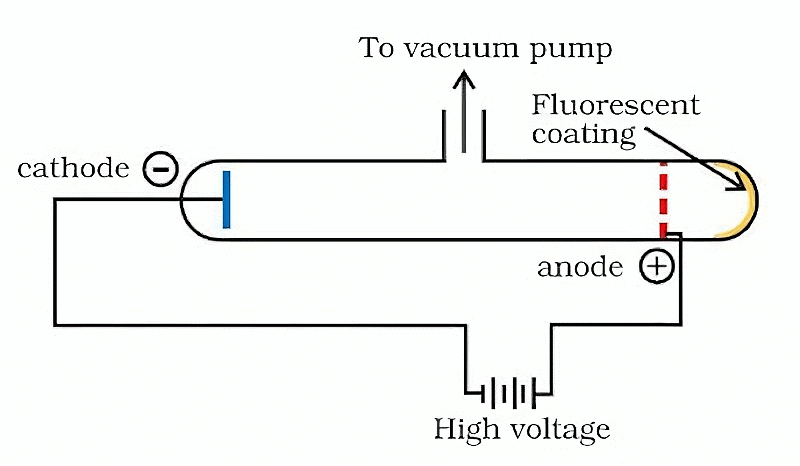 Diagram in the chapter Structure of Atom
Diagram in the chapter Structure of Atom
Solve NCERT Exercises: NCERT Chemistry textbook contain a range of exercises. Try to solve all the questions, and check your answers.
Try to link different things: Link different pieces of information together to create information webs and make sense of the material.
- Practice Solved Examples: Also, practice the solved examples which are given in between theory part of NCERT Textbook and grasp their concepts.
Revise Regularly: Regular revision is essential to memorize and understand the concepts and formulas. Make sure to revise regularly, and try to recall the key concepts and formulas from memory.
Seek Help When Needed: Whether you're struggling with a particular concept or reaction, don't be afraid to seek help from your teachers or peers. EduRev's Discussion Forum is a great resource for posting your doubts and receiving answers from knowledgeable individuals. Additionally, topic-specific videos in Physical Chemistry for NEET Course can help clarify any uncertainties and lead you to success.
How to study Organic Chemistry from NCERT Book?
Studying Organic Chemistry from the NCERT book can be challenging, but with the right approach, it can be a rewarding experience. Here are some tips to help you study Organic Chemistry effectively:
- Understand the basics: The field of Organic Chemistry deals with the study of carbon-based compounds, including their structure, bonding, and reactions. It is crucial to establish a strong grasp of the fundamentals before diving into more complex topics. Students must ensure that they have a clear understanding of basic concepts such as electron configuration, hybridization, and acidity and basicity, as explained in the NCERT Textbook. These fundamentals are essential building blocks for a deeper understanding of Organic Chemistry.
- Read the text carefully: Organic Chemistry can be difficult to understand, so it's important to read the text carefully. Pay attention to the diagrams and tables provided in the NCERT Textbook, as they often provide additional information. Also, try to understand the meaning behind the text rather than just memorizing it.
- Practice: Solving problems is the key to mastering Organic Chemistry. It is advisable to solve as many problems as possible from the NCERT textbook to build a strong foundation and develop problem-solving skills. It is essential to understand the reasoning behind each step in a problem.
- Make notes: Making notes and flashcards is an effective way to remember important concepts, reactions, and mechanisms. Be sure to include examples in your notes to gain a better understanding of the concepts.
- Focus on reactions: Organic Chemistry revolves around reactions, so it is crucial to focus on understanding the mechanisms and products formed during the reactions. Learning the different types of reactions and their applications is also essential. Practice drawing reaction mechanisms and identify key intermediates and products to gain mastery in this area.
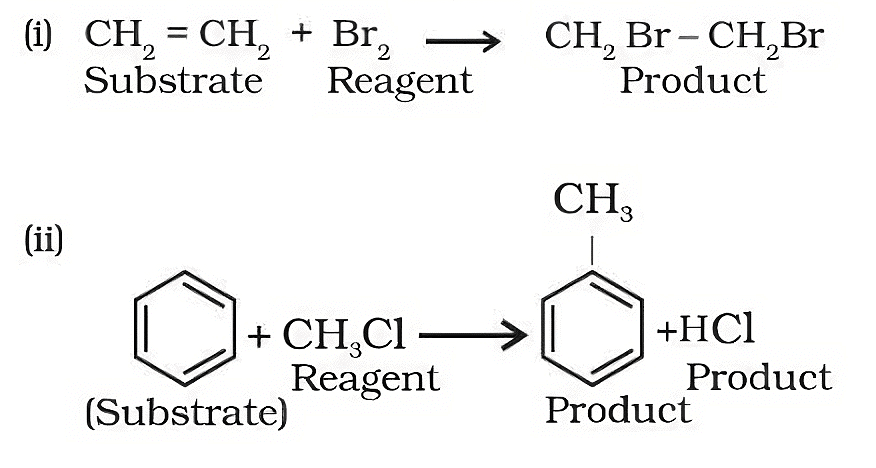 Example of Organic Reactions
Example of Organic Reactions
- Videos, Notes & Practice Questions: EduRev is a great platform that provides videos, notes, and practice questions to help you prepare for your exams. Make use of Organic Chemistry for NEET Course to supplement your understanding of Organic Chemistry.
How to study Inorganic Chemistry from NCERT Book?
Here is how you can utilize NCERT book and study Inorganic Chemistry from it.
- Get a good understanding of the basics: Pick up the NCERT book and read it thoroughly. Make sure you understand the basic concepts and principles before moving on to the reactions and compounds. NCERT is more than enough. Read like how you read your biology.
- Mark Important Points: Mark or underline the reactions and important points in the text to help you remember them.
- Go Topic Wise: Go topic-wise and focus on each group of elements and their compounds. For example, for p-block elements, focus on each element and its compounds.
- Draw Charts and Practice: Make one chart for each compound of an element by analyzing the reactions from the NCERT Textbook. This will give you an average of 2-3 charts per element. Daily draw new charts and practice writing them daily. This will help you complete the p-block in one week, which is the longest chapter.
- Understand the concepts: Rather than just memorizing facts, aim to understand the underlying concepts of inorganic chemistry. This involves understanding the different types of chemical reactions, such as acid-base reactions, redox reactions, and precipitation reactions, as well as their mechanisms.
Use diagrams and tables: Inorganic chemistry involves a lot of diagrams and tables. These include the periodic table, Lewis structures, and reaction diagrams. Spend time studying these diagrams included and tables available in NCERT Textbook to visualize the concepts and better understand the subject.
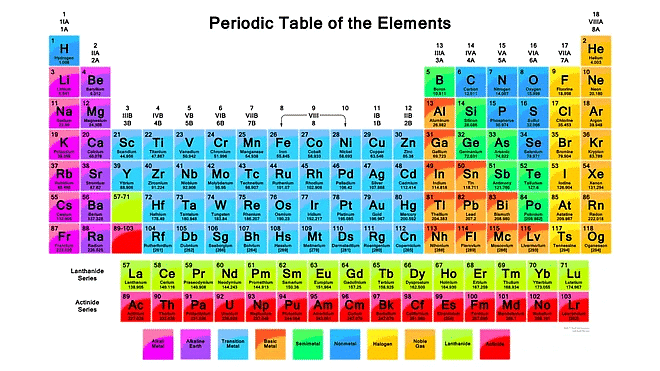 Inorganic Chemistry Periodic Table
Inorganic Chemistry Periodic TablePractice numerical problems: Inorganic chemistry involves a lot of numerical problems, including stoichiometry, mole calculations, and equilibrium calculations. Practice the solved numerical problems given in between the chapter regularly to improve your problem-solving skills.
Make notes: Taking notes while studying is a helpful way to remember key concepts, formulas, and equations. It also serves as a quick reference for exam preparation. EduRev offers useful resources like videos, notes, and practice questions to aid in NEET Inorganic Chemistry preparation.
Solve NCERT exercises: The NCERT book for inorganic chemistry contains numerous exercises and questions. Make sure to solve all of them to reinforce your understanding of the subject. This will also help you to identify areas where you need to improve.
How to study Physics from NCERT?
Physics is an important subject for NEET exam. NEET toppers strongly recommend studying Physics from NCERT textbook as they provide comprehensive coverage of the subject in a simple and concise language, which helps in building a strong foundation and conceptual understanding of the subject. Here are some tips for studying physics from the NCERT book for NEET exam:

- Understand the syllabus: Before starting your preparation, carefully go through the NEET Physics syllabus and the NCERT textbook to understand the topics that you need to cover. Make a study plan to cover all the topics in a timely and organized manner.
- Focus on understanding: Physics is a subject that requires a deep understanding of concepts, theories, and formulae. Rather than just memorizing the formulas, focus on understanding the underlying concepts and their applications given in NCERT Textbook.
- Learn to visualize: Physics involves a lot of graphical representations, diagrams, and figures. Practice visualizing these representations to understand the concepts better. For example, try to visualize the motion of an object in your mind when studying kinematics.
- Points to Ponder Section: Read the “points to ponder” and "summary" section which is given at the end of all theory chapters in NCERT for an overview and quick revision.
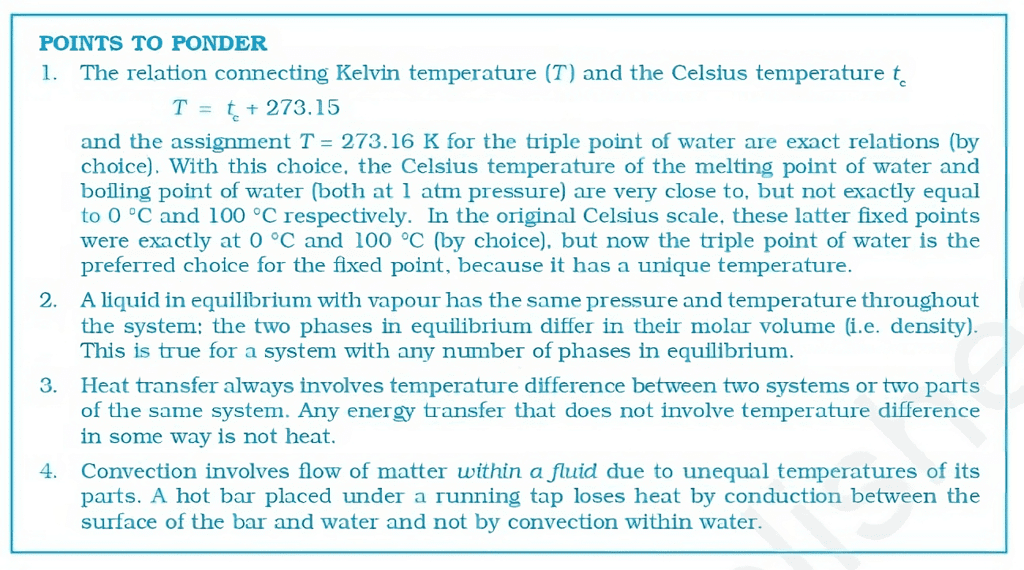 Points to Ponder Section in NCERT
Points to Ponder Section in NCERT - Practice numerical problems: Physics is a highly numerical subject, and NEET Physics exam often contains complex numerical problems. Regular practice of numerical problems will help you develop problem-solving skills and improve your speed and accuracy.
- Make notes: Physics involves a lot of derivations and formulae. Make sure to write down important derivations, formulae, and concepts in your own words while studying. This will help you revise the material more efficiently and effectively.
- Solve NCERT exercises: The NCERT book contains a variety of exercise problems, including MCQs, short answer questions, and numerical problems. Try to solve all the exercise problems to reinforce your understanding of the concepts.
- Refer to additional resources: In addition to the NCERT book, you can also refer to other textbook and online resources such as EduRev. EduRev is an excellent platform that offers a wide range of study materials, video lectures, practice tests, and question banks for NEET Physics exam. Utilize EduRev to gain a deeper understanding of the concepts and improve your problem-solving skills.
Frequently Asked Questions (FAQs)
Q.1. What is the importance of NCERTs for NEET preparation?
NCERTs provide a comprehensive coverage of the NEET syllabus in a simple and concise language. They are considered the backbone of NEET preparation, as almost all questions asked in NEET are based on the NCERT textbook. Therefore, having a thorough understanding of NCERT concepts is essential for NEET preparation.
Q.2. Can I rely solely on NCERTs for NEET preparation?
Although NCERT textbooks are crucial for NEET preparation, it is advisable to utilize additional resources like mock tests, practice papers, and previous year papers. This approach will enable you to develop a comprehensive understanding of the concepts and practice a diverse range of questions.
Q.3. Is it necessary to read NCERTs for NEET Chemistry?
Yes, it is highly recommended to read and understand NCERTs for NEET Chemistry, as almost all questions in the NEET Chemistry section are based on the NCERT textbook. A thorough understanding of the concepts provided in the NCERT textbook is essential for NEET Chemistry preparation.
Q.4. Are NCERTs enough for NEET Physics preparation?
While NCERTs serve as a crucial resource for NEET Physics preparation, relying solely on them may not be sufficient. To excel in the exam, it is advisable to supplement your studies with additional resources such as full-length mock tests, subject-wise mock tests, and practice papers. Solving past years' NEET Physics papers can also help you understand the types of questions asked in the exam and aid in better preparation.
Q.5. How can I make the most out of studying NCERTs for NEET?
To make the most out of studying NCERTs for NEET, it is recommended to read the text carefully, practice as many problems as possible, make notes of important concepts and formulae, and supplement your understanding with online resources like EduRev. Additionally, it is important to revise and practice regularly to ensure that you have a solid grasp of the concepts.





















